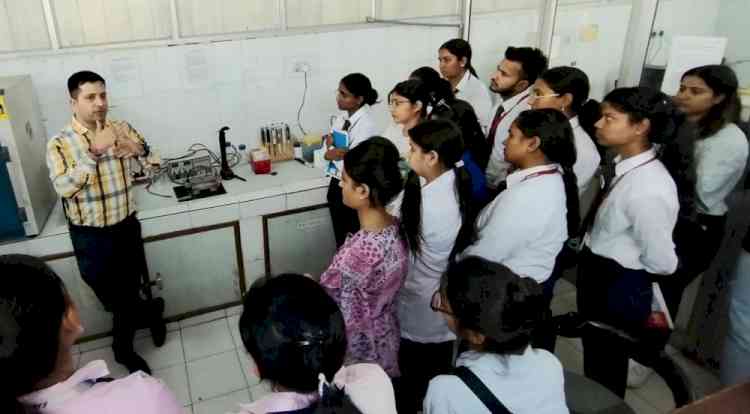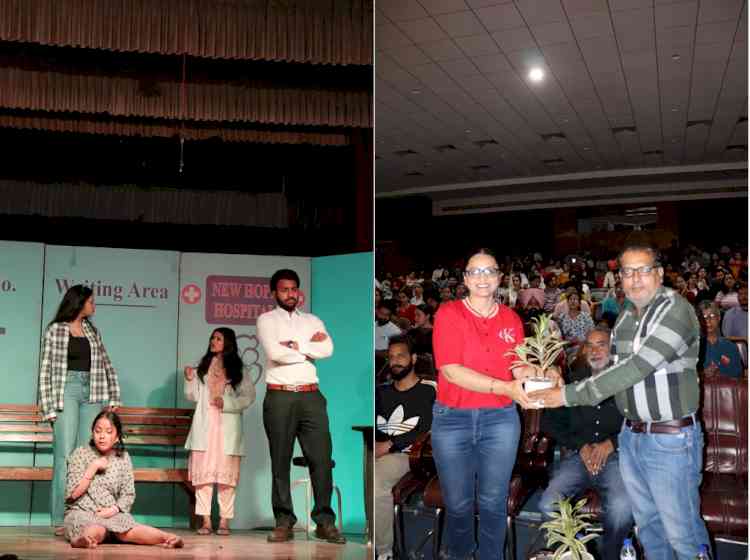Tata Housing and WWF-India renew partnership for biodiversity conservation
Author(s): City Air News(L-R) Mr. Ravi Singh, Secretary General & CEO, WWF-India with Mr. Brotin Banerjee, CEO and MD, Tata Housing. photo: city air news New Delhi, December 26, 2016: Tata Housing and WWF-India today announced a renewal...

(L-R) Mr. Ravi Singh, Secretary General & CEO, WWF-India with Mr. Brotin Banerjee, CEO and MD, Tata Housing.
photo: city air news
New Delhi, December 26, 2016: Tata Housing and WWF-India today announced a renewal of their partnership to continue their joint efforts in biodiversity conservation in the north-eastern part of India. The announcement of this renewal is a result of the earlier three year successful partnership between both organizations in Sikkim and Arunachal Pradesh. Focussing on community-based conservation initiatives, the second phase of the project, based primarily in Sikkim, will capitalise on the achievements made over the last three years and support initiatives in red panda and snow leopard conservation, protection and participatory management of natural freshwater resources and sustainable livelihood opportunities for local communities.
The earlier partnership between Tata Housing and WWF-India (2013-2016),resulted in scientific assessment of red panda habitat, identification of areas for intensive studies on snow leopards in high altitude areas of Sikkim and Arunachal Pradesh, involvement of Tawang Monastery in Arunachal Pradesh to address threats resulting from pilgrim visits to the Bhagajang Wetland Complex in Arunachal Pradesh and education initiatives across 130 schools on spring-shed conservation towards ensuring rural water security in the state of Sikkim.
The current partnership, building on the study of the estimate of the red panda range and assessment of its threats, conducted in the last phase, will now involve local communities in conservation of red panda and support field studies on snow leopards to determine the population status and density of the species in Sikkim, in partnership with the Government of Sikkim. The project will also work towards enabling local communities to use forest products for their livelihoods in a sustainable manner, under the existing legal provisions in the state of Sikkim.
With approximately 80% of Sikkim’s rural population depending on natural freshwater springs to meet their daily water needs, the current partnership will assist the state government agencies and local communities for ensuring rural water security in the state. In addition, the project will look at strengthening the capacity of local stakeholders on sustainable extraction of cordyceps- a high value bio-resource (also called Yarsagumbu/ caterpillar mushroom)as a means of livelihood.
Mr. Brotin Banerjee, CEO and Managing Director, Tata Housing said, “At Tata Housing, we feel it is important to maintain the ecological balance in the environment along with promoting sustainable green development. Our partnership with WWF-India is an effort to conserve the amazing biodiversity of Sikkim by involving local communities in conservation initiatives and helping them co-exist in harmony with the nature. The proposed initiatives are in line with our efforts to safeguard and conserve the unique mountain wildlife and their habitats.”
Speaking on the necessity of community involvement in conservation, Mr. Ravi Singh, Secretary General & CEO, WWF-India said, “Local communities are at the core of all our biodiversity conservation programmes. In the past three years, the partnership between Tata Housing and WWF-India has contributed to species and habitat conservation work in Sikkim and Western Arunachal Pradesh in the Eastern Himalayas and Ladakh, Jammu & Kashmir in the Western Himalayas. We have been able to further our research and on ground partnership with local stakeholders for conservation of red panda and snow leopard populations and habitats in these three states. We aim to strengthen partnerships with the Lachen Tourism Development Committee, the Lachen Dzumsa, the Himal Rakshaks in Sikkim and further our species conservation work, to leverage implementation of effective conservation action on ground through the renewed partnership.”

 cityairnews
cityairnews 
















